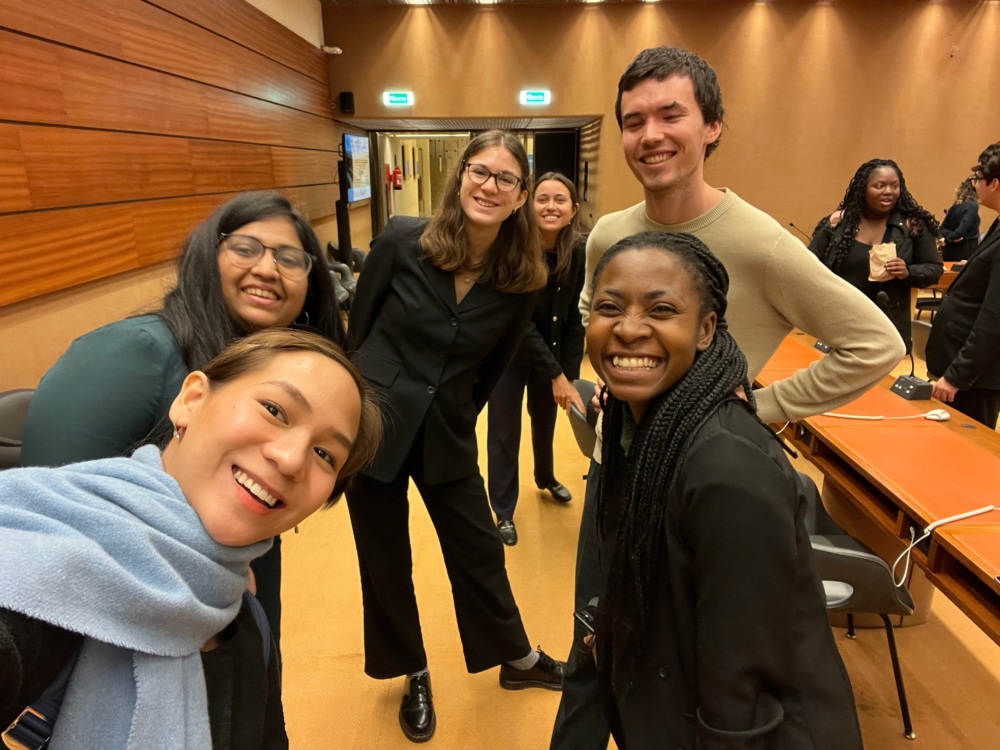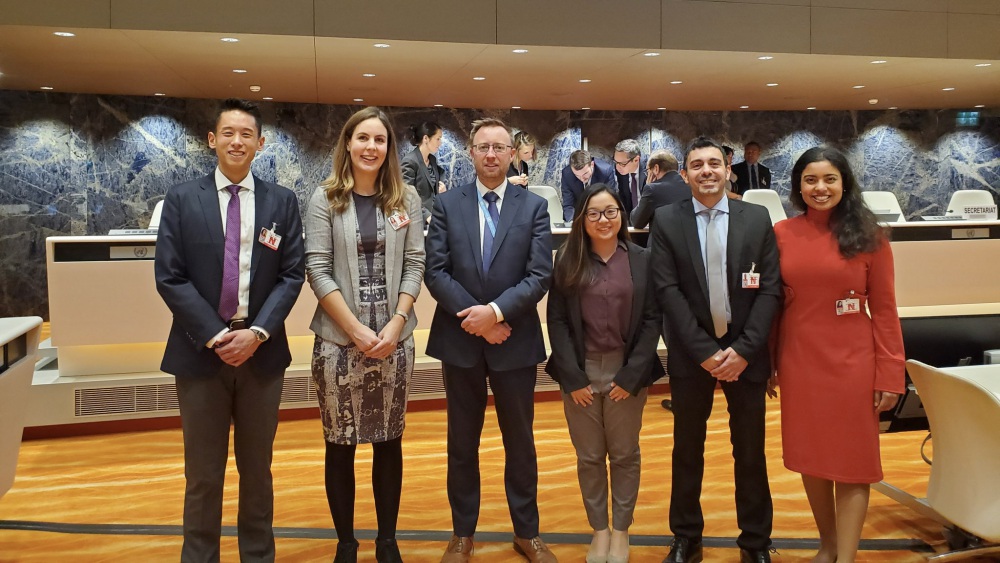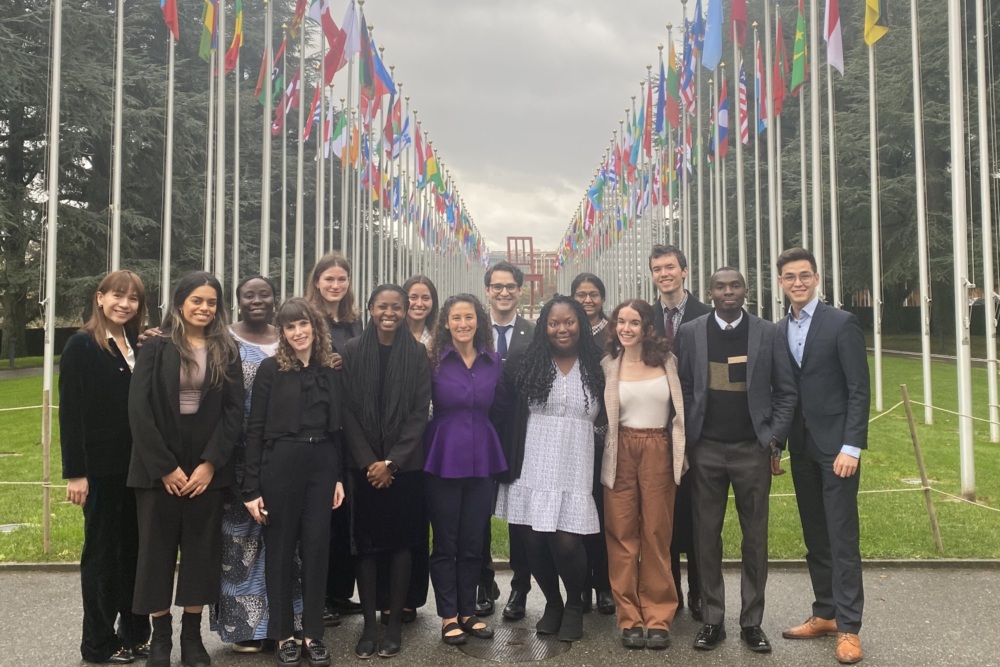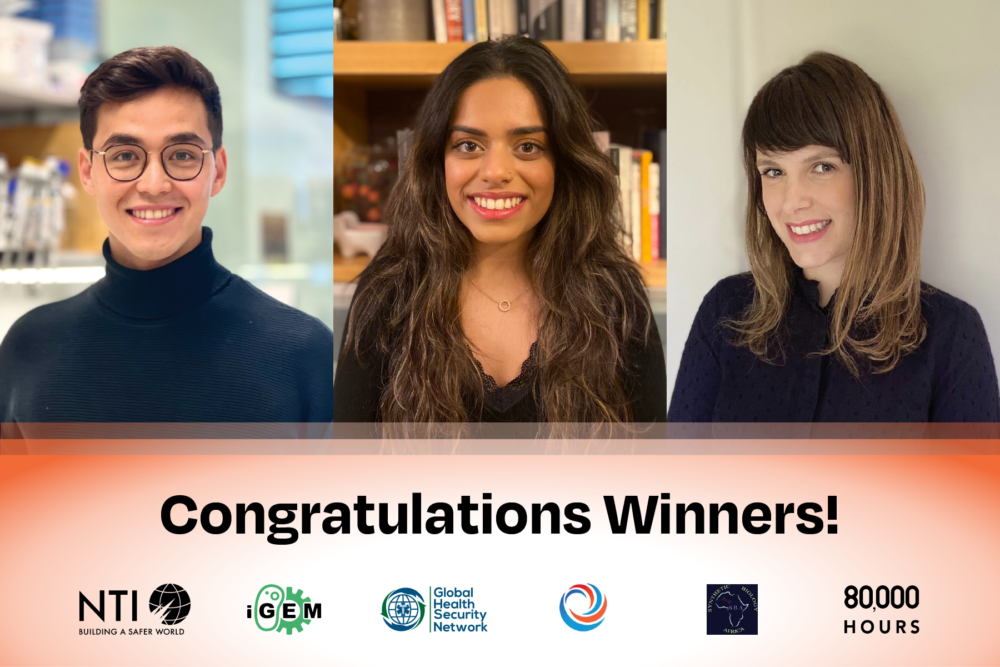
Apply for the 2024 NTI | bio Next Generation Biosecurity Delegation
NTI | bio will bring a 2024 Next Generation Biosecurity Delegation of early-career professionals to the Biological Weapons Convention (BWC) meetings from August 19 – 23.
NTI | bio, in partnership with the Next Generation Global Health Security Network, is pleased to announce the winners of the third annual joint Next Generation for Biosecurity Competition. Gayatri Sanku, a PhD student at Georgetown University-National Institutes of Health, Jarjieh Fang, a master of public health candidate at George Washington University and a senior research analyst at Pharmerit International, and Lucky Sunshine L. Go, a medical student at St. Luke's Medical Center, College of Medicine in the Philippines, took first place with their paper SynthRITE (Research, Innovation, Technology, and Ethics): An Online Community to Facilitate Biosecurity and Biosafety Discourse and Address Key Deficits in Current Approaches. In the paper, they propose the development of SynthRITE “a cohesive vision for connecting novel stakeholders around the world and strengthening the discourse around biosecurity and biosafety.” As the global community develops new norms to govern emerging technologies, they call for a focus on inclusivity, education, and awareness.
The winning team was selected from papers submitted by students and young professionals from nine countries across four continents. An international expert panel of 19 judges from seven countries across five continents evaluated the papers in a three-round judging process. In addition to the winning team, four teams will be recognized this year for their outstanding submissions to the competition. Michael T. Parker, Michelle Murti, and R. Emerson Tuttle took second place for their paper, Global Stewardship of Recombinant Plasmid Sequences: A Win-Win Approach to Enhancing Biosecurity and Biological Sciences Research. The two honorable mention papers and their authors are listed below.
The winning team of the 2019 Next Generation for Biosecurity Competition will receive travel support to attend the 2019 Meeting of States Parties to the Biological Weapons Convention. They will present on their winning paper during an NTI-hosted side event, Engaging the Non-Governmental Sector and the Next Generation to Address Emerging Biological Risks Associated with Advances in Technology on December 6, 2019.
The Next Generation for Biosecurity Competition underscores the importance of promoting a global cadre of multi-sectoral, young professionals dedicated to reducing catastrophic biological risks. Follow #NextGenBiosecurity for updates during the upcoming Meeting of States Parties to the Biological Weapons Convention.
2019 Next Generation for Biosecurity Competition Winner
2019 Next Generation for Biosecurity Competition Runner-Up
Honorable Mentions
Integrating Biosecurity in Low Resource/Developing Countries: Multi-Dimensional Management Strategy
Sign up for our newsletter to get the latest on nuclear and biological threats.
NTI | bio will bring a 2024 Next Generation Biosecurity Delegation of early-career professionals to the Biological Weapons Convention (BWC) meetings from August 19 – 23.
This year, the competition invites innovative and creative papers focused on how investments in biosecurity can both contribute to a more equitable society and reduce biological risks.
Gurpreet Dhaliwal, Askar Kleefeldt, and Alexandra Klein have won the seventh annual Next Generation for Biosecurity Competition.


